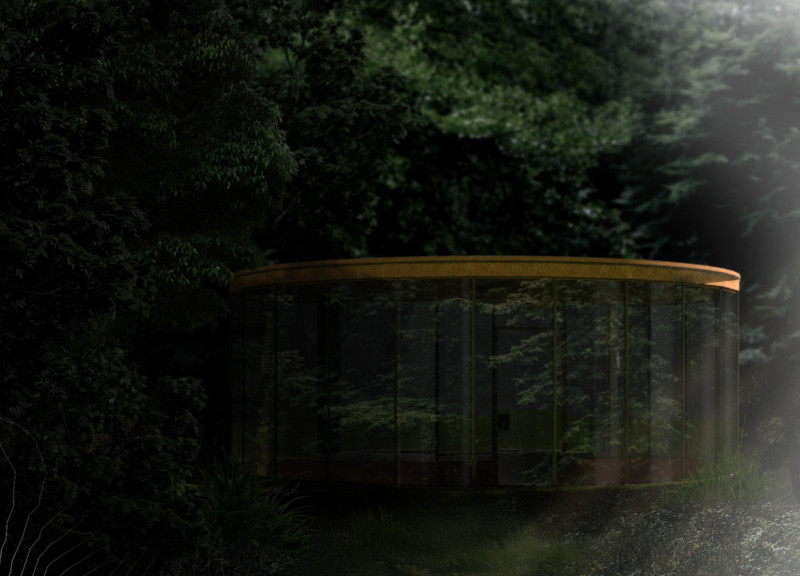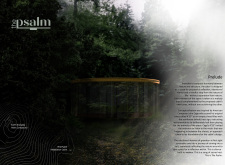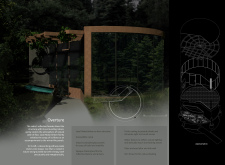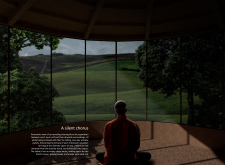5 key facts about this project
Integration with Nature
One of the defining aspects of this project is its focus on blurring boundaries between the interior and exterior. The cabin features reflective facades made from industry-standard glass panels, allowing for unobstructed views of the forest while flooding the interior with natural light. Local Matai timber is employed for its warmth and natural aesthetics, reinforcing the cabin's organic presence in its setting. The use of concrete provides structural stability while grounding the design within the landscape.
The layout includes panoramic windows that create a dialogue with the environment, inviting users to immerse themselves in the sights and sounds of nature. The interior space is open and versatile, accommodating various meditative practices such as yoga and quiet contemplation. This flexibility enhances the functionality of the project, allowing multiple uses while maintaining a cohesive atmosphere.
Innovative Features
The design of the Psalm Meditation Cabin incorporates unique features that distinguish it from traditional architectural retreats. The opaque tinted glass film on specific windows balances privacy with natural light, ensuring that users can engage in reflection without distraction. The structural use of trellis roofing provides shade and stimulates sensory interaction with the natural elements.
Additionally, the integration of a slim focus fire installation introduces a natural heating method that complements the meditative experience. A water feature is included to enhance the auditory environment, mimicking the soothing sounds of nature that contribute to mindfulness. The accessibility ramp ensures that the cabin is inclusive, promoting easy access for all users.
Sustainability and Local Materials
An emphasis on sustainability is evident throughout the design, with a commitment to using locally sourced materials. This reduces the environmental impact and adds to the project’s authenticity. The architectural design promotes energy efficiency while respecting the natural context, ensuring that the cabin does not dominate the landscape but rather harmonizes with it.
The Psalm Meditation Cabin stands out within the realm of architectural retreats due to its thoughtful approach to materiality, user experience, and environmental integration. The project embodies an architectural philosophy that prioritizes connection, tranquility, and functionality, offering a space tailored to individual needs for reflection and meditation.
To gain deeper insights into the project's architectural plans, sections, and designs, readers are encouraged to explore the comprehensive project presentation. This exploration will provide further understanding of the architectural ideas that underpin this unique cabin.

























